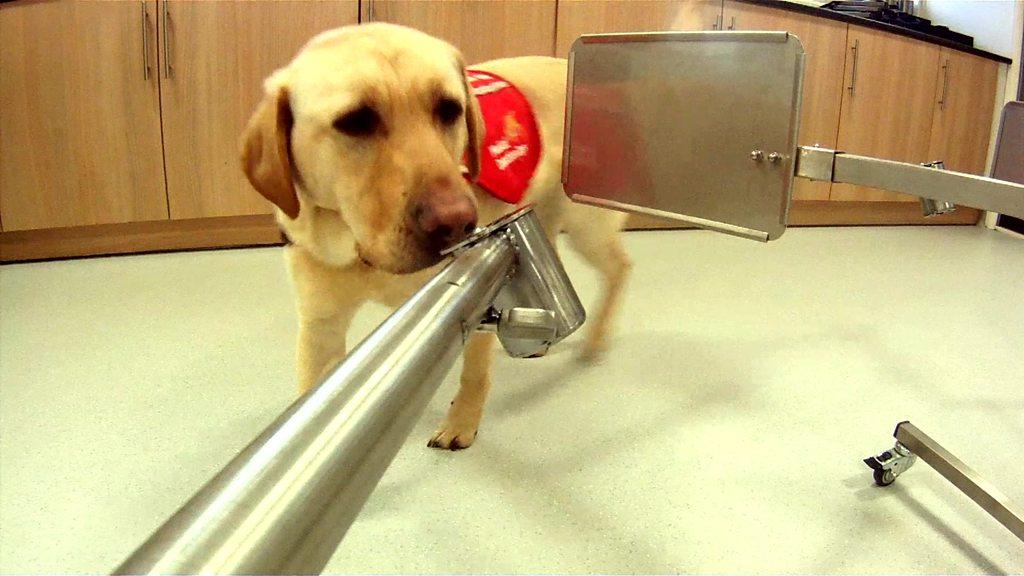Training of Covid-19 detection dogs reaches final trial stages
- Published
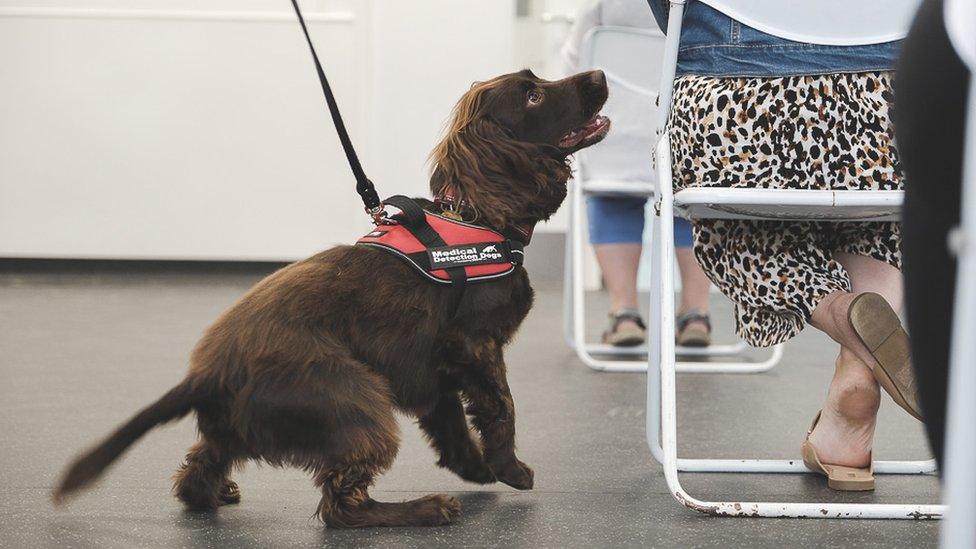
The specially trained dogs will now be detecting the odour of Covid-19 in real-life settings
A trial to train dogs to "sniff out" coronavirus in humans has reached its final "real-life" phase.
Six dogs are being trained with the charity Medical Detection Dogs (MDD) in Milton Keynes.
Results of a first phase, published in the Journal of Travel Medicine, external, showed that the virus has a unique odour that specially-trained dogs can detect.
Researchers are appealing for anyone who suspects they have the virus - or has tested positive - to come forward.
In the final stage, known as validation, trainers will ask the dogs to discriminate Covid-positive from Covid-negative participants under strict blind conditions - meaning that even the dogs' trainers do not know who has the virus.
It is the first time dogs have been used to passively screen for disease.
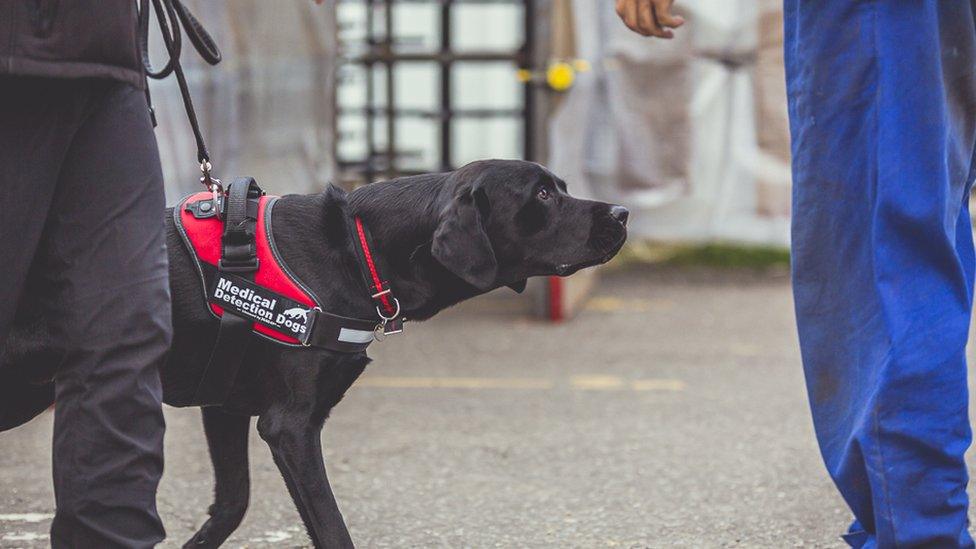
Research found that the coronavirus has a distinct odour that can be detected by dogs
In phase one, more than 3,750 people across the UK donated odour samples, by wearing socks, face masks and shirts which were processed by the research team and used for training and testing the dogs.
An "elite team" of bio-detection dogs carried out double-blind testing, correctly identifying the odour more than 94% of the time.

SELF-ISOLATION: Do I need to isolate if I have Covid?
COVID RULES: What's the guidance for Covid in the UK now?

Claire Guest, the charity's co-founder and chief executive, said they now need people to be "quickly and non-invasively screened" by at least one dog.
"By taking part in our study you'll be helping us test just how accurate our amazing Covid-19 detection dogs are at sniffing the virus on people," she said.
"We've already proved that they can detect it on samples in the training room at very high accuracy levels and we need to show how effective they could be in real-life settings.
"If successful this approach could be used for the rapid detection of other diseases in the future."
The dogs are trained to sit or stand by, to indicate if they detect the virus.
Researchers want to test the dogs on a large sample set and ensure "the most robust set of results in this world-leading study".
The sniff test is "fast, reliable and non-invasive and will enable earlier self-isolation to prevent onward transmission", the charity said.
Results indicated that dogs performed better than lateral flow tests and acted faster, "since one dog can screen up to 250 people in one hour".
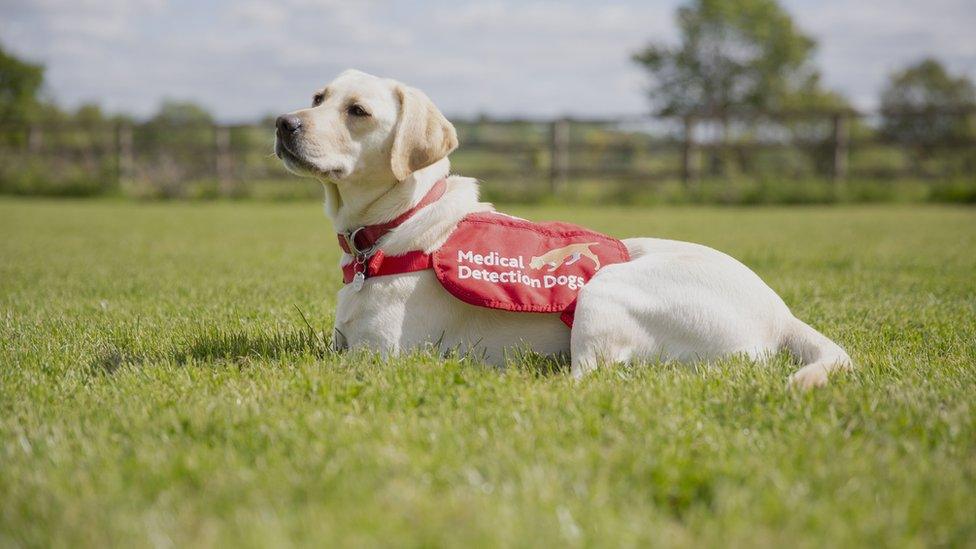
Dogs are becoming a "wet-nosed line of defence" against many diseases, including some cancers

Find BBC News: East of England on Facebook, external, Instagram, external and Twitter, external. If you have a story suggestion email eastofenglandnews@bbc.co.uk, external
Related topics
- Published3 July 2020
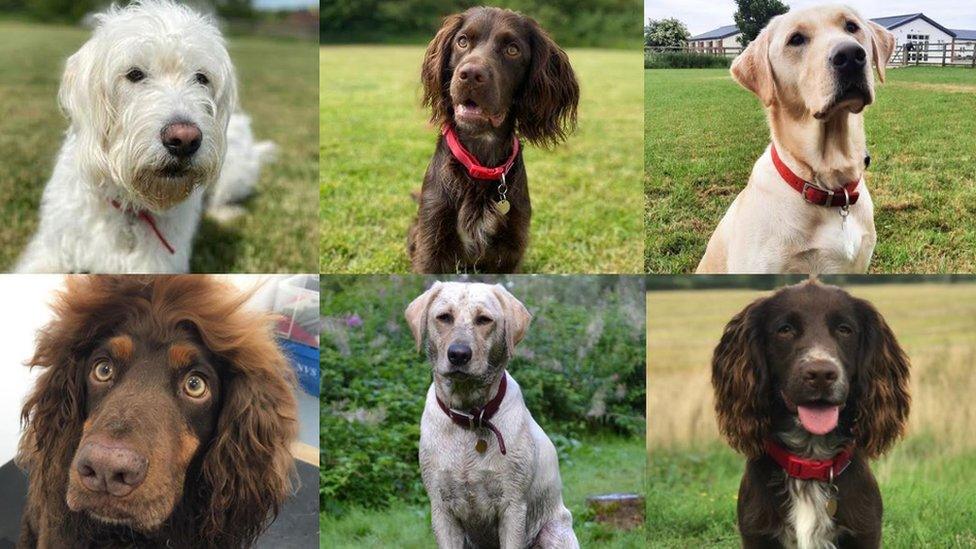
- Published16 May 2020
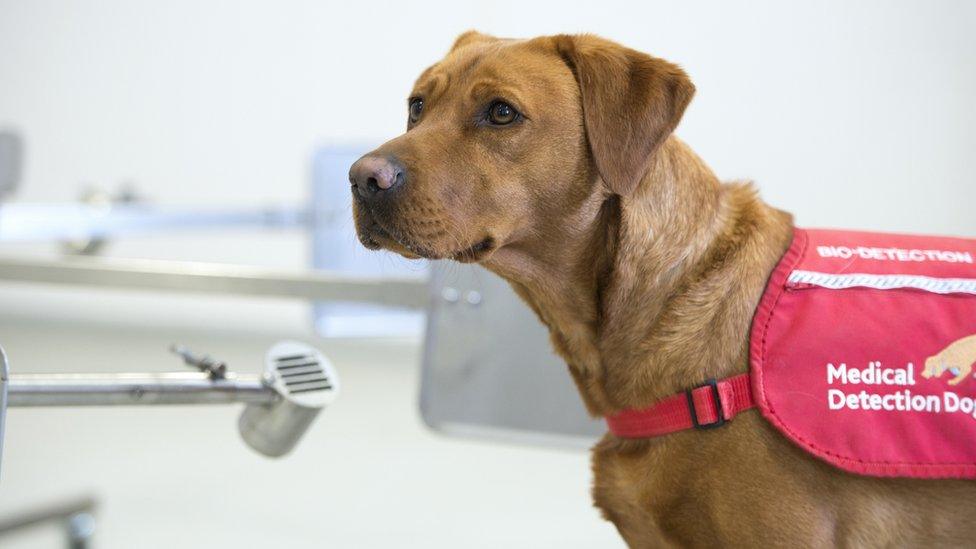
- Published27 March 2020
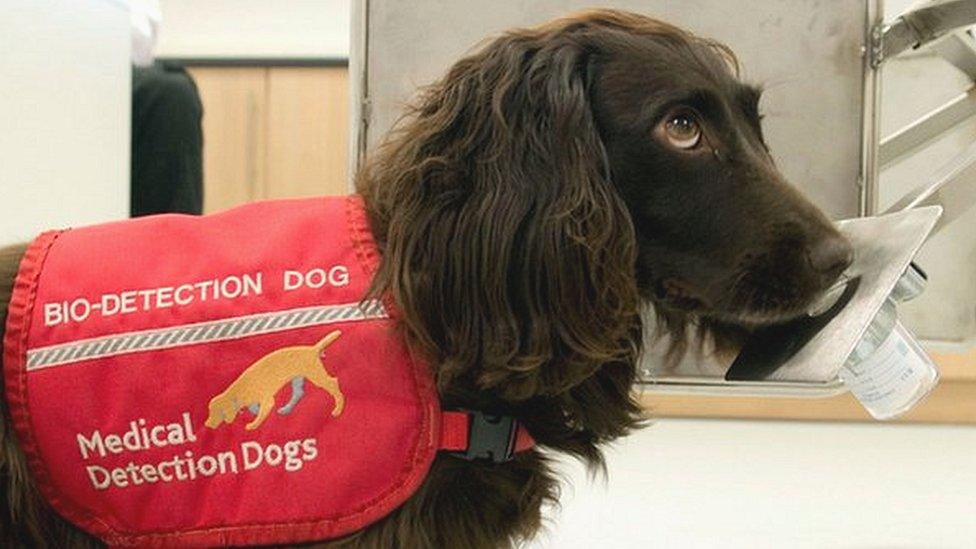
- Published13 March 2017
